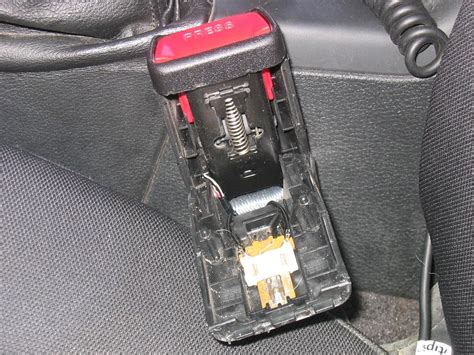Seatbelt Chime Disable Tricks That Really Work (And Which Ones Don't)
The incessant beeping of your seatbelt chime. We've all been there. That annoying reminder, especially on short trips or when you're just moving the car a short distance, can quickly become maddening. While many "tricks" circulate online, promising to silence that persistent chime, not all are effective or safe. This comprehensive guide explores methods to disable your seatbelt chime, separating fact from fiction and prioritizing safety.
Important Disclaimer: Disabling your seatbelt chime is generally discouraged, as it compromises a critical safety feature designed to protect you and your passengers in the event of an accident. The information provided below is for informational purposes only and should not be interpreted as an endorsement of disabling your safety systems. Always prioritize safety and wear your seatbelt.
Methods That Don't Work (and Why):
Many online "hacks" suggest using everyday items to trick the sensor. These rarely work and are often unreliable. These include:
- Using seatbelt extenders or buckles: While extenders are legitimate for those who need additional reach, using them to bypass the chime is ineffective in most modern vehicles. The sensor technology is sophisticated enough to detect the lack of proper tension and weight on the buckle.
- Weight placement: Placing weights or objects on the buckle to simulate a fastened seatbelt is similarly unreliable. Modern sensors use various methods to detect a genuine buckle fastening, not just weight.
- Loose seatbelt adjustments: Manipulating the seatbelt to create slack may temporarily quiet the chime but is unsafe and unreliable.
Methods That Might Work (with significant caveats):
The effectiveness of these methods varies greatly depending on the make, model, and year of your vehicle. They should be attempted with extreme caution and awareness of the safety implications.
- Using a seatbelt buckle clip: Some aftermarket seatbelt buckle clips claim to trick the sensor. However, their reliability is questionable and they're not universally compatible. Moreover, using such a device could void your vehicle's warranty or compromise its safety systems.
- Professional disabling: Some mechanics or specialized car electronics shops might be able to disable the chime through software modifications or reprogramming. However, this is often expensive, potentially risky, and may negatively impact your vehicle's overall operation. Finding a reputable professional is crucial.
How Does a Seatbelt Chime Work?
Understanding how the system works helps illustrate why many DIY methods fail. Modern vehicles use a complex system that checks for:
- Buckle engagement: The buckle must be properly engaged with the seatbelt retractor.
- Weight on the buckle: The system detects the weight and pressure applied to the buckle, ensuring someone is genuinely strapped in.
- Belt tension: Many newer systems also detect if the belt is appropriately fastened across the body.
Why You Shouldn't Disable Your Seatbelt Chime:
The chime is there to protect you. Even short trips present risks, and unbuckled occupants are significantly more vulnerable to serious injury or death in a collision. Disabling the chime diminishes this crucial safety reminder, leading to increased risks for yourself and others.
What to Do Instead of Disabling the Chime:
Consider these alternatives to constant beeping:
- Adjusting the chime duration: Some vehicles offer settings to reduce the chime duration. Check your owner's manual.
- Tolerating the chime: Short trips often mean only brief exposure to the chime.
- Addressing underlying issues: If the chime is consistently malfunctioning, it might indicate a problem with the seatbelt system itself. Have your vehicle inspected by a qualified mechanic.
Conclusion:
While the temptation to silence an annoying seatbelt chime is understandable, prioritizing safety is paramount. The risks associated with disabling this critical safety system far outweigh any minor inconvenience. If the chime is persistently bothersome, explore alternative solutions provided by your vehicle's manufacturer or seek professional help instead of resorting to unreliable and potentially dangerous workarounds. Always remember, buckling up is the most effective way to ensure your safety.

